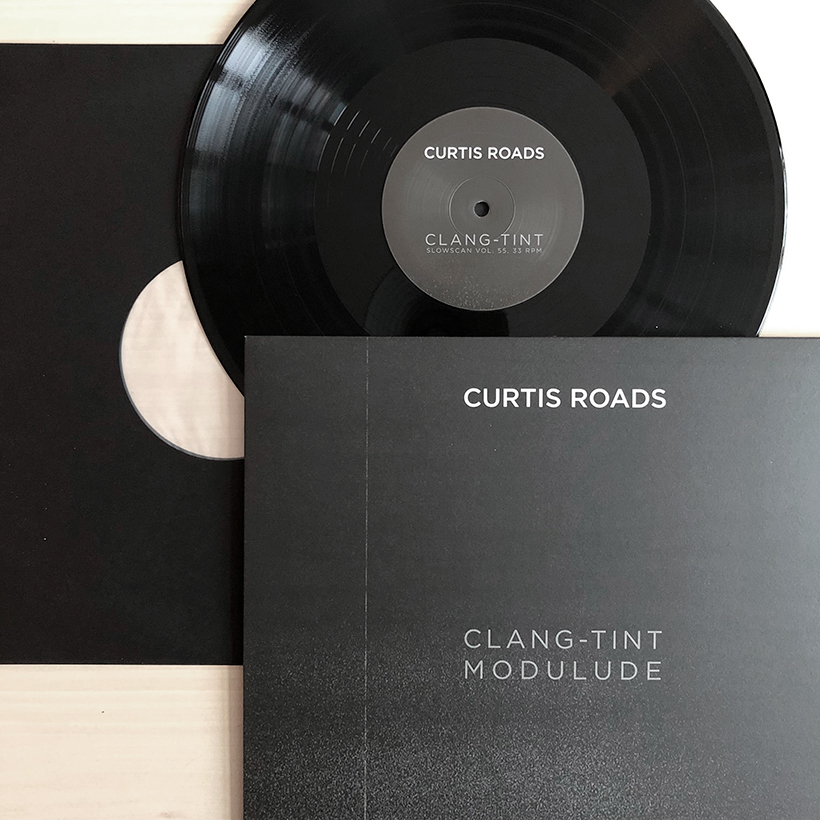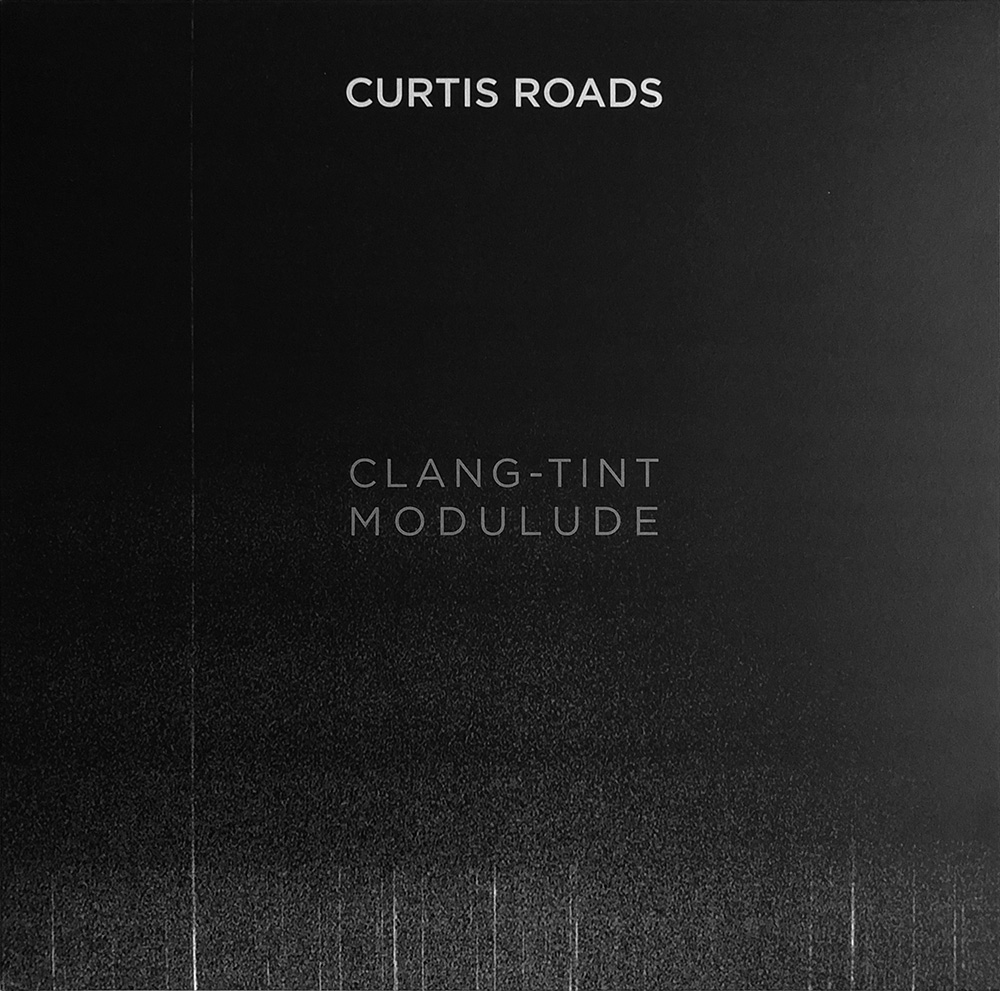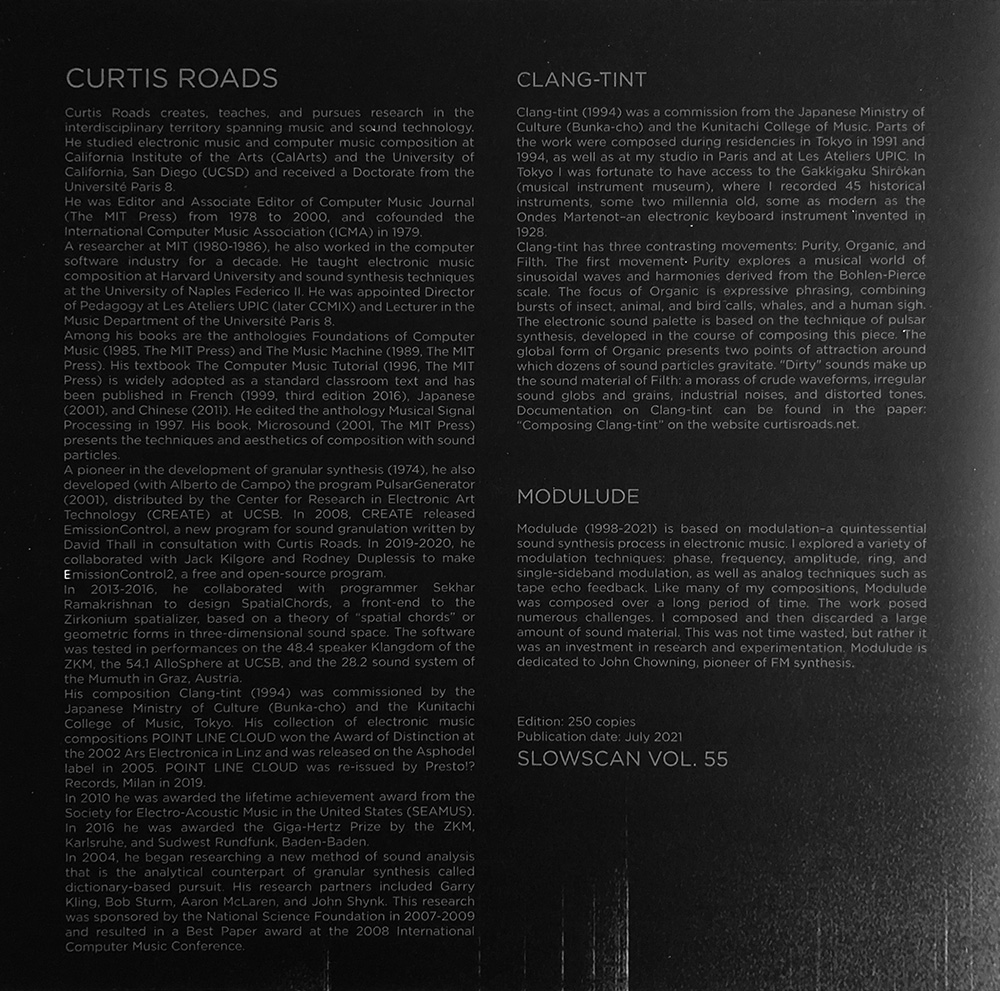Curtis Roads (1951) is a composer, writer, computer programmer and researcher in electronic music composition. Roads studied electronic music and computer music composition at California Institute of the Arts (CalArts) and the University of California San Diego (UCSD). Currently he is vice-chair of the Media Arts and Technology Program at the University of California, Santa Barbara and he used to teach at the University of Naples, Harvard University, Oberlin Conservatory, Les Ateliers UPIC and Université de Paris VIII. Roads was editor and associate-editor of the Computer Music Journal from 1978 to 2000 and co-founded the International Computer Music Association in 1979. A researcher at MIT from 1980 to 1986, he also worked in the computer software industry for a decade. Among his books are the anthologies Foundations of Computer Music (1985), The Music Machine (1989), The Computer Music Tutorial (1996) and Microsound (2004).
 Roads counts as a pioneer in the development of granular synthesis and developed the program PulsarGenerator with Alberto de Campo in 2001. Among other collaborations in the field of computer programming are EmissionControl (with David Thall), EmissionControl2 (with Jack Kilgore and Rodney Duplessis) and SpatialChords (with Sekhar Ramakrishnan). In 2010 he was awarded a lifetime achievement award from the Society for Electro-Acoustic Music in the United States (SEAMUS) and in 2016 the Giga-Hertz Prize by ZKM, Karlsruhe.
Roads counts as a pioneer in the development of granular synthesis and developed the program PulsarGenerator with Alberto de Campo in 2001. Among other collaborations in the field of computer programming are EmissionControl (with David Thall), EmissionControl2 (with Jack Kilgore and Rodney Duplessis) and SpatialChords (with Sekhar Ramakrishnan). In 2010 he was awarded a lifetime achievement award from the Society for Electro-Acoustic Music in the United States (SEAMUS) and in 2016 the Giga-Hertz Prize by ZKM, Karlsruhe.
Curtis Roads’s 1994 composition in three movements Clang-Tint, now released by Slowscan as side A of Slowscan Vol. 55, was commissioned by the Japanese Ministry of Culture (Bunka-cho) and the Kunitachi College of Music, Tokyo. Modulude on side B is based on modulation – a quintessential sound synthesis process in electronic music – and was composed over a long period of time: from 1998 to 2021. Slowscan did well to combine these two pieces on another beautiful Slowscan release, handsomely packaged by Johnny Van de Koolwijk and fitted with explanatory liner notes by Roads.


